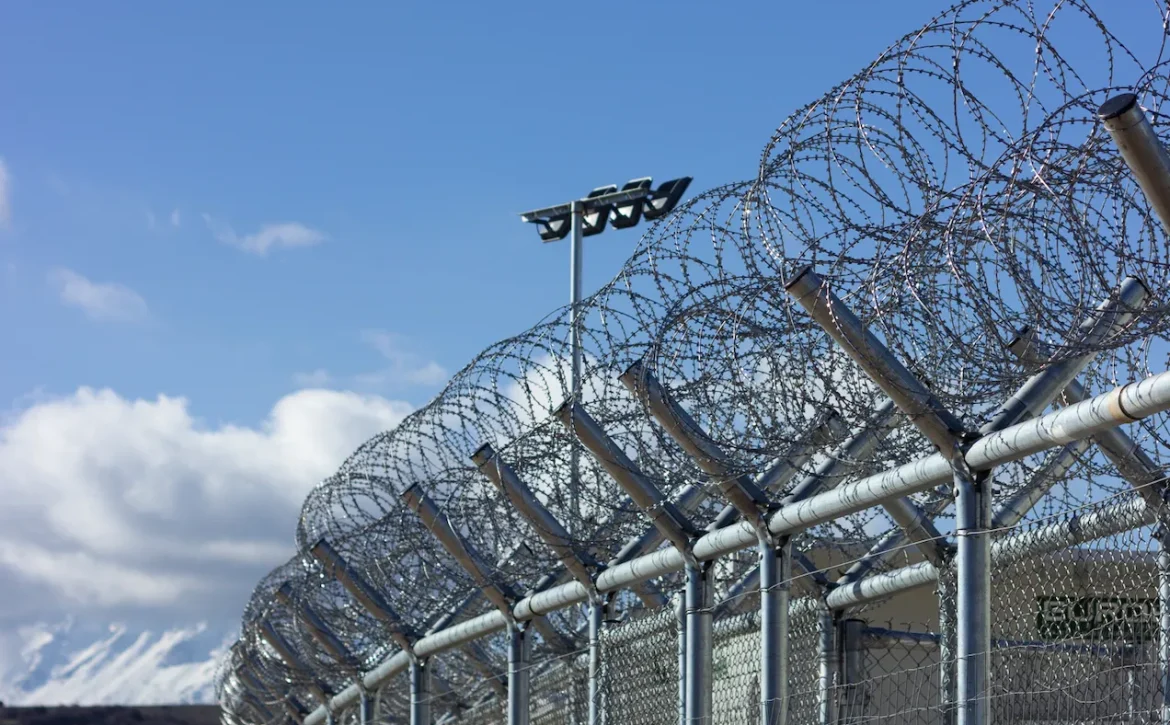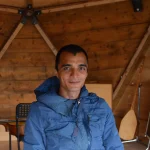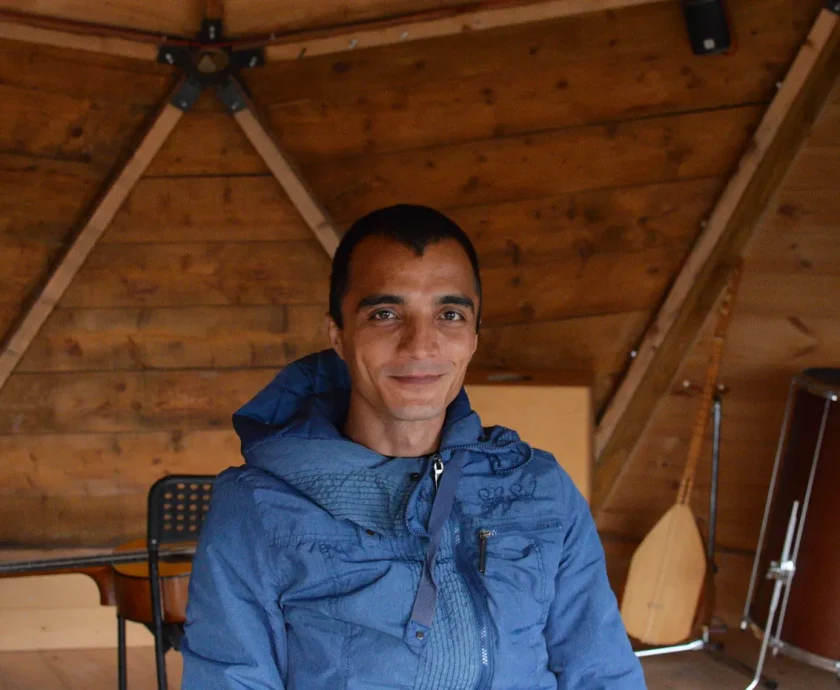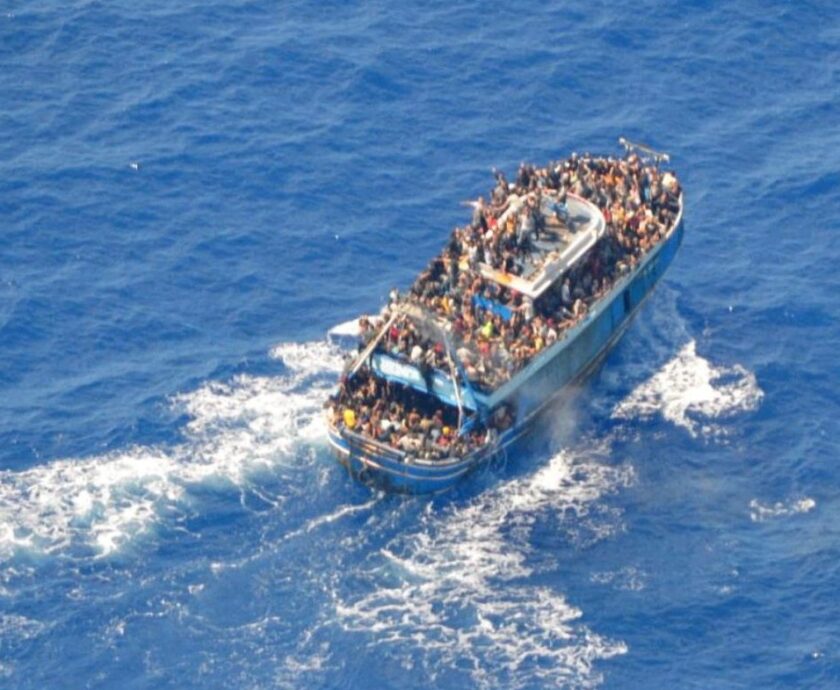
Two showers in two months: Inside a European detention centre
The guard’s kindness came as a surprise to her. After weeks inside a detention centre in Igoumenitsa, a port city in northern Greece, it had been a long time since Zareena experienced generosity.
“What do you want from us?” He asked in English.
Her answer came instantly. It was obvious. With no chance to wash for nearly a month, Zareena was desperate to shower.
“Shampoo. I want shampoo,” she said.
In half an hour the guard returned, a speck of humanity tucked under his arm. He led Zareena to a small cubicle inside the police station. The door was broken; the lock a useless lump of metal. The guard waited outside.
She cried as she showered, the soapy water running through her hair. No one could tell Zareena how long she would be detained. All she could do was hope.
Fleeing conflict
Zareena is a multilingual gynaecologist from Afghanistan. When she lived in Kabul, the country’s capital, women were free to wear trousers and attend university. But by 2018, the city was restricted and dangerous — especially for women.
Conflict with America escalated after the militant Taliban killed 115 people in a series of terror attacks in Kabul. As innocent people continued to loose their lives, confidence in the country’s US-backed government dwindled.
Under the bombardment of airstrikes and suicide attacks, 3,804 civilians were killed in 2018. This included 927 children which, at the time, was the highest number of child deaths reported since the United Nations Assistance Mission in Afghanistan began its records.
As girls’ schools were forcibly and systematically closed, Zareena feared for women’s rights. “They [the Taliban] just want to make them [women] stay at home to give birth to the child. The only thing that you can do is the tailoring, then that’s it. You don’t have the right to go to education,” she said.
With her family already living in Sweden, Zareena and her husband faced these struggles alone. Gradually it dawned on her. The risks of remaining in Afghanistan were too great. Although it would mean leaving behind her education and qualifications, staying could no longer be justified. They decided to flee.
Detained in a fortress
Towards the end of 2018, Zareena and her husband travelled overland to Europe. The borders were dangerous and the conditions harsh, but the prospects of safety and family carried them forward. They continued, finally reaching the northern border of Greece.
From Orestiada, the newest city in Greece, they drove to coastal Igoumenistsa. Tavernas and ticket offices line the shoreline, catering to ferry passengers and haulage workers. Sailing to Corfu — one of the country’s most famous holiday islands — takes a little over an hour.
This is the hidden division of Europe. Just 35km from luxury resorts and tranquil beaches, lies a detention facility forcibly housing people seeking asylum. Zareena and her husband lived in this centre for two months and four days.
Confined to separate rooms, time merged in repetition. First, a meal — followed by hours inside. Next, a break outside — followed by time inside. Finally, a second meal — followed by sleep.
When people like Zareena arrive in Greece to claim asylum, they are detained for a mandatory period of 25 days in a Registration Identification Centre. During this time, the Greek Asylum Service will confirm a person’s identity and register their asylum case. If it deems a person ineligible for asylum, they will be transferred to a Pre-deportation Detention Centre.
However, the new EU Pact on Migration, passed 10 April 202, will create controversial changes, with mandatory detention set to become part of every asylum seeker’s journey.
Under the new legislation, the EU would aim to process each application within 12 weeks. Either a person will be allowed to claim asylum in the EU, or controversially they will be deported to a different country, which could be outside of Europe.
Applying for asylum
As the weeks passed, Zareena noticed that other people moved through the detention process more quickly. Those from countries deemed most dangerous were released in just seven days, but it remained unclear how long she would have to wait. “There were so many questions in mind just moving around at that time,” she said.
After a month in detention, one of the guards told Zareena they would provide her with financial support to return to Afghanistan. “I think they said about 500 euros and I didn’t accept that at that time. I refused that. I just answered them that if I wanted to go back to my country, why have I invested about €10,000 to reach my destination?”
The 146 nations to have signed the UN’s 1951 Geneva Convention have a responsibility to protect those fleeing persecution and violence. At its core, is the principle of non-refoulment. This means people should not be returned to a country where their rights and freedoms are threatened. Greece ratified its commitment to the Convention in 1956.
Zareena stayed firm, telling the guards she wanted to apply for asylum in Greece. They accepted, but could not tell her when she would be released from detention.
The endless wait
The time in limbo was a struggle for Zareena. “I faced so many difficulties mentally. I was not well there and I was not comfortable. I was afraid during the night, there wasn’t any light. And for me, it just seemed like a zoo…you are not free to go here and there,” she said.
A gifted linguist, Zareena’s English skills brought her small leniencies. As she got to know the detention guards, they allowed her to spend time with her husband and twice let her shower. When Zareena dared ask for a third, she was sarcastically rebuffed. “This is not a five-star hotel,” the man replied.
Detention in Ignoumenista presented unique challenges for women. “It is difficult for young women, especially with the periods. It is difficult to be in that situation…we didn’t have a heater inside the place where they kept me and when my husband was hugging me, he was just making me warm like that,” Zareena recalled.
Finally, on 14 February 2019, Zareena and her husband were released. To live, they were sent to Katsikas, a refugee camp near Ioannina on the Greek mainland. To apply for asylum, they had to visit the Asylum Unit in Perama on the far side of the city.
The endless wait
Naser’s first — and most vulnerable — days in Greece had been marked by extreme misinformation and misunderstanding. Eventually, he was able to move from Ioannina to the Filipiada camp near Arta. “I knew no one and memories of my family moved in front of my eyes,” he said.
Naser got lucky with his registration appointment. Unlike some of the cases described by Manon, within a month he secured a date to register as an asylum seeker. “I am so thankful. I’ve been through so many difficulties so now I’m happy that I have reached a place where I can be relaxed; where I can be comfortable,” Naser said.
Approximately 16 months since he arrived in Greece, Naser’s legal limbo ended. At the end of February 2024, Naser moved from Greece to start a new life in Switzerland. But as the EU’s new Pact on Migration progresses through Parliament, extended periods of legal limbo seem increasingly certain.
The new Pact — intended to more evenly distribute responsibility for asylum seekers among EU countries and limit movement within the EU — proposes stricter screening at Europe’s borders.
As is already happening in Greece, people would be detained during a pre-screening process. The Pact says it would aim to process each application within 12 weeks, during which time a person’s fate will be sealed: either they can continue to claim asylum in the EU or they will be sent to a different country.
Research into the impacts of detention reveals severe, negative consequences for a person’s mental health. Studies consistently show people seeking refuge to be at higher risk of mental ill-health, especially depression and PTSD linked to experiences of torture and human trafficking.
These risks can be exacerbated when asylum cases are prolonged. According to the Helen Bamber Foundation, the ‘time spent in immigration detention in a host country is a particular stressor because it entails both loss of liberty and the threat of forced return to the country of origin.’
Our anonymous source, who experienced detention for more than two months, found this period indescribably challenging. “I faced many difficulties mentally. I was not well there [in detention]. And I was not comfortable. I was afraid during the night — there wasn’t any light. And for me, it just seemed like a zoo. It was a cabin and out of the cabin, there was a cage that you just can move and see around but you are not free to go here and there.”
The final vote on the new EU Pact of Migration is scheduled to take place in April 2024. It is expected to pass.
Living in Katsikas
Despite the relief of leaving detention, Zareena’s journey was far from over. Once in Katsikas, her asylum application was twice rejected. By now it was 2021 and still, she had seen no progress. But as Zareena lodged her third case, the situation in Afghanistan changed dramatically.
After a 20-year rule by the US-backed government, the Taliban fundamentalist group took over. Almost overnight, women’s rights were obliterated and daily life grew increasingly precarious. Clearly, Zareena and her husband could not return — their asylum applications were accepted.
As Zareena waited in Katsikas for the next stages of the asylum process, she heard stories of women living under the new Taliban leaders. “They are arresting women that they are fighting for their rights. They are keeping them in prison without any criminal records. It is so difficult now, they somehow eliminate the ladies or females from the society totally,” she said.
Shortly before this interview, Zareena received an asylum decision that would take her to Germany. With legal travel papers, she could finally reunite with her family in Sweden. She had not seen her loved ones for more than four years. “I was above the moon,” she said.
You can hear Zareena tell her story in our ASYLUM podcast, a new miniseries from the Storytellers’ Lab in Habibi.Works. ASYLUM is also available on Youtube.
To learn more about the lived conditions within detention camps and the use of detention within the asylum process, visit ‘Detention Landscapes’ — an evidence-based platform that documents human rights violations inside immigration detention facilities, launched by Mobile Info Team, Border Violence Monitoring Network and the University of Oxford’s Border Criminologies network.
To learn more about Katsikas refugee camp, you can explore the Soup and Socks YouTube channel, find Habibi.Works on Instagram or Facebook, and read some of the other ‘Updates from Katsikas’ in this publication. Watch ‘Katsikas “Hospitality Centre” through the years’ here.





